What really happens when we die? Palliative care doctor on a ‘mission to take away the fear’ reveals the stages the body goes through
A retired doctor has revealed what the last moments before death are like, in a bid to help people ‘tackle the fear’ of passing.
Cheshire-born doctor Kathryn Mannix, 64 – who has worked as a palliative care doctor for 30 years – appeared on BBC Woman’s Hour with presenter Emma Barnett to discuss her new short animation ‘Dying for Beginners’.
In an excerpt posted on InstagramKathryn explained the process, and what happens to your body, which she compared to an “old cell phone” that can’t charge.
In an attempt to allay some of the fears surrounding death, she said many people will be unconscious near the end of life.
“It’s not a scary mental state to be in, it’s a state of not knowing anything,” she said.
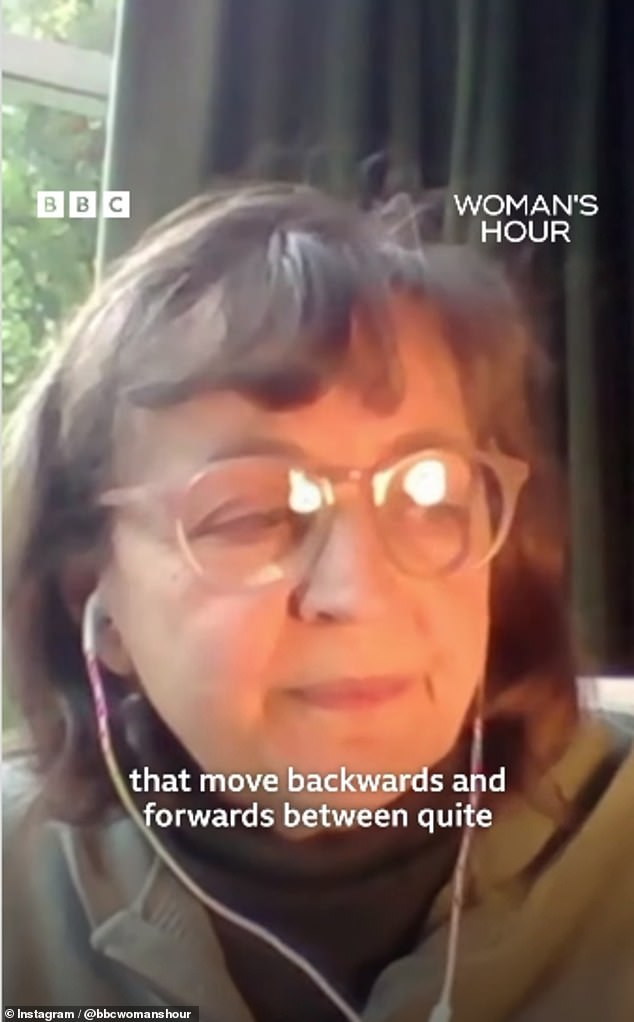
Dr. Kathryn Mannix (pictured), 64, appeared on an episode of BBC Woman’s Hour to discuss her new short animation ‘Dying for Beginners’
In response to Emma’s request to explain the ‘process’ behind dying, she said: ‘The first thing you notice is that the body starts to run out of energy, almost like you have an old mobile phone and the battery no longer works. stay charged.
“And the charger is sleep. More than food, more than drink. And in fact, many dying people don’t feel very hungry and that’s fine. They don’t die because they don’t eat. They don’t eat because their bodies are dying.
‘So as time goes on, people gradually need more sleep to give them enough energy to think and do what they can. And gradually people become not just asleep, but unconscious.
‘Now they don’t recognize the difference. It’s not a scary mental state to be in, it’s a state of knowing nothing.”
The expert explained that when your body enters its final moments, you “always” fall unconscious as life fades away – which is very different from the drama often depicted in Hollywood films.
She also talked about the so-called death rattle, a labored breathing that can sound disturbing.
She explained: ‘The brain uses reflex breathing patterns that move back and forth between quite deep breaths that gradually become more shallow.
‘And then back to the beginning, and back and forth between periods of quite slow breathing, faster breathing, and back to slow breathing again.
“If you haven’t seen that before, you might think that the person breathing, perhaps quickly but shallowly, is having trouble breathing, is panting or is uncomfortable.”
Dr. Kathryn described this as a sign of ‘deep unconsciousness’ and urged others to take note of the symptoms creeping in.
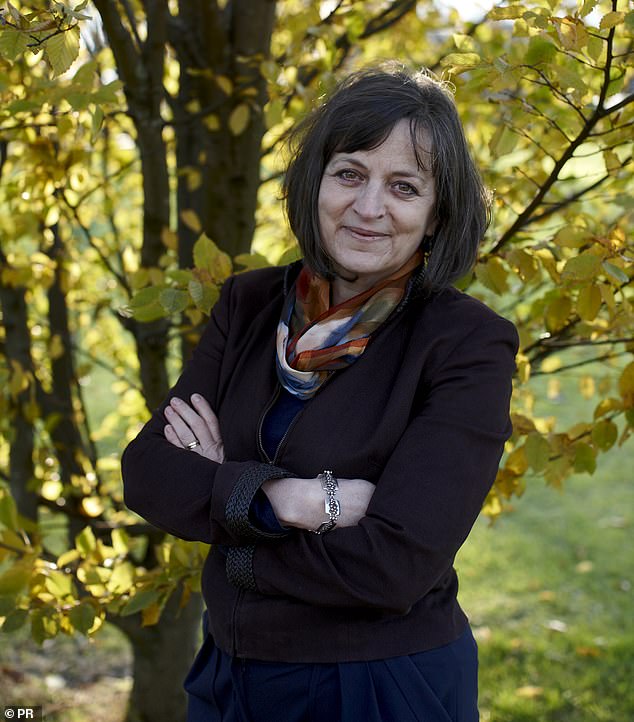
The retired palliative care doctor revealed what the last moments before death look like, in a bid to help people ‘tackle the fear’ of passing on
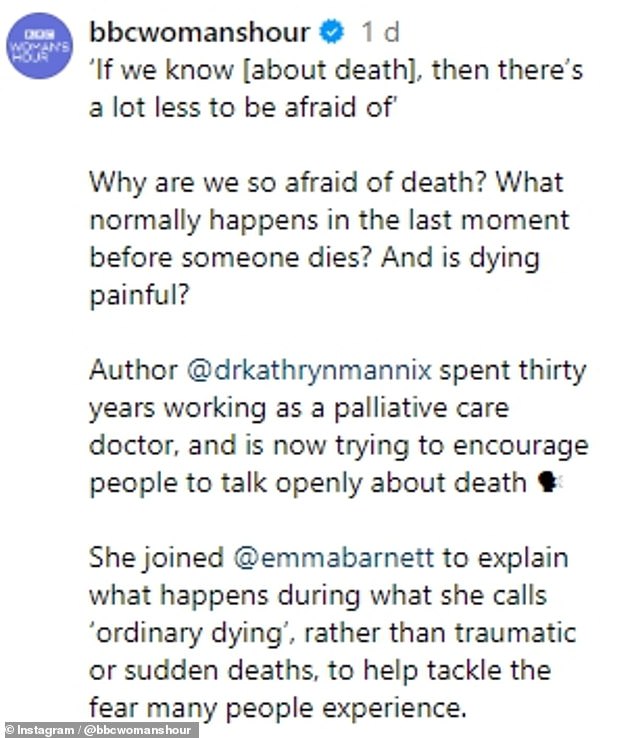
During the interview, Kathryn explained the process behind your last breath, including what happens to your body, which she compared to an “old cell phone” that can’t charge
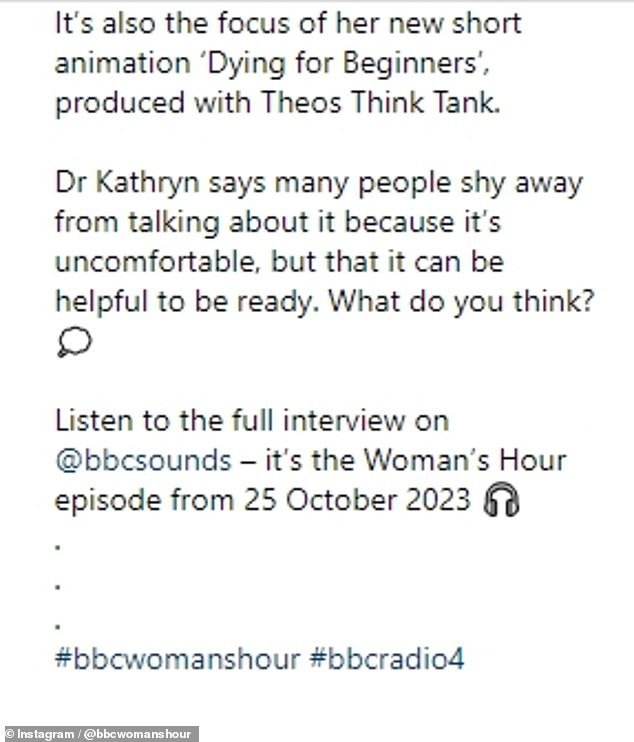
She also raised awareness about the facts of death, hoping it would be seen as ‘ordinary’, rather than ‘frightening’, adding that ‘it is a state of knowing nothing’.
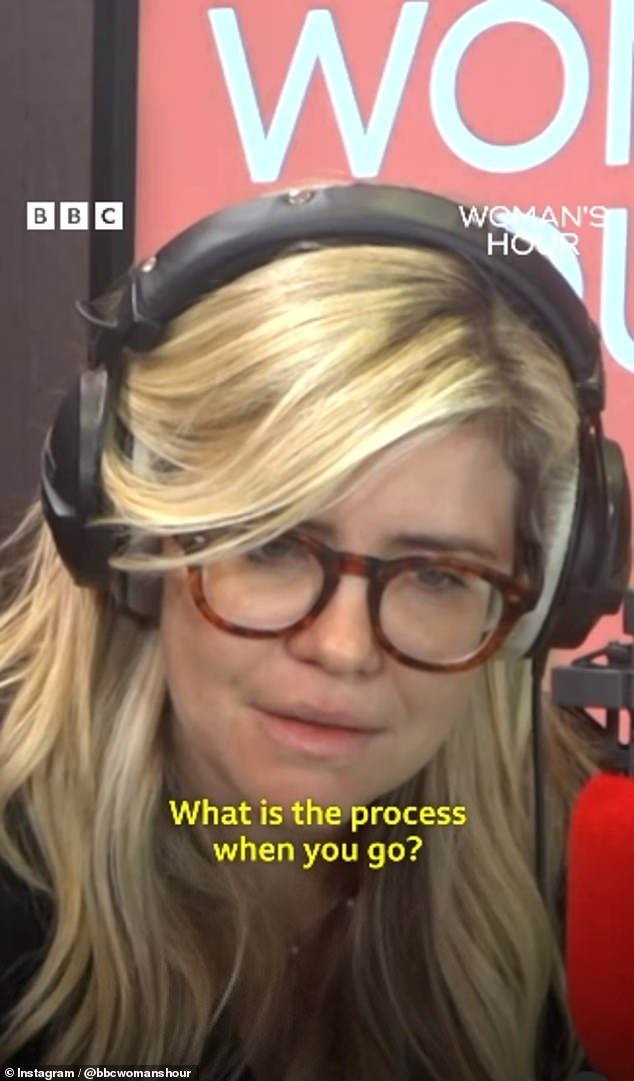
The expert spoke to presenter Emma Barnett on the latest episode of BBC Woman’s Hour
“This person is quite safe,” she added. “And then at the very end of someone’s life, there’s usually one of those slow breathing phases.
“There’s going to be an exhale that’s not going to be inhaled afterward, and that’s not at all what Hollywood has led us all to expect.”
She said knowing these facts won’t make death less sad for people’s loved ones, but she hopes it will make it seem less scary.
“I think removing fear is the mission I’m on,” she concluded.
Kathryn qualified as a cognitive behavioral therapist in 1993, before setting up the UK’s first CBT clinic exclusively for palliative care patients.
Last year she wrote Listen: How to Find the Words for Tender Conversation – a book about having honest conversations about death.
